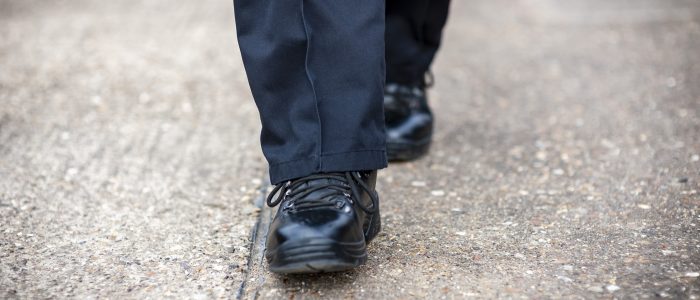Police officers should not be called on as first responders to mental health incidents
SOUTH Yorkshire Police are being called out as the first responders to incidences involving mental health issues, and it’s ‘totally inappropriate’ according to South Yorkshire Police Federation.
The Federation estimates that these calls can take up to 50% of a police officer’s time.
A new report suggests police officers across the country are getting dispatched on 999 shouts to people suffering from mental health crises more than ever before and that they are the often the first responders ahead of specialist mental health services.
The number of calls has risen by 41% over the past five years across England and Wales a freedom of information request undertaken by The Guardian revealed.
South Yorkshire Police Federation Chairman Steve Kent says the problem is so widespread he estimates it takes up half of officers’ workloads.
He says he has ‘absolute sympathy’ for NHS and ambulance responders who do their very best with the resources available, but it’s inappropriate for officers to be on the very frontline of dealing with mental health-driven incidents.
“It’s not giving that person the proper care and attention they need,” he said.
“What it also does is it puts our officers at a massive risk of it going wrong, as we see so many times, and the IOPC and other organisations like them then jumping all over the police to say we haven’t done this right, we haven’t done that right.
“So, it’s exposing our officers to risk here, and it’s exposing the actual members of the public to the risk. It is totally inappropriate, and it has to stop.”
Steve says the issue has to be resolved at a national level with increased resourcing. That could potentially be through a specialist fifth emergency service run by the NHS.
“The problem is massive; I would say it takes up 50% of officers’ time,” he said.
“There has to be a national strategy change on this. I know we’re under a COVID cloud, but in better circumstances, there almost needs to be a fifth emergency service perhaps; a specific arm of the NHS that goes out and deals with it.
“Yes, if they go out and someone’s violent they can have the police assistance, but it’s a far better situation if someone is having a mental health crisis and we as police officers, and I’m talking from experience here, go and assist them rather than take the lead.
“Then they’re in an ambulance with us assisting them. On extreme occasions, they can be medicated. When the police turn up on their own, what are we trained to do? We’re trained to deal with violent criminals, and we cannot always be expected to adopt those skills to deal with people who are mentally ill.”
The lack of recognition of the ‘no-win’ scenario officers are placed in by the IOPC also needs urgent reform, and there are too many examples when officers have been put in difficult situations, Steve added.
“There are extreme examples when you have people in a mental health crisis, and they are causing serious damage or serious assaults on people,” he said.
“The police response to that is going to be the same as it would be to somebody who was a violent criminal doing the same thing. You’ve got to put the public first, and you’ve got to take control of that person.
“But very frequently, and this will strike a chord with any officer in South Yorkshire or across the country, we will hear incidents of, ‘so and so’s having a mental health breakdown in his house. He’s been violent, so ambulance won’t attend until police go’.
“So this person who is having a mental health episode, whose family have called up, the first people coming through that door are police officers.
“That’s just going to make the situation a whole lot worse.”
As with everything, officers will always do their best in any situation they may find themselves in, and Steve himself has had a lot of experience in dealing with the fallout from people’s mental health crises.
“On the flip side officers are very, very good and the number of days on end I’ve sat at mental health wards… we end up getting a great rapport with the person and calming them down and being their friend and whatnot.
“But it can sometimes go wrong, and this needs to change to stop those officers getting into issues with the IOP, for when they’re just trying to do their best but they’re not quite trained to deal with it and something goes wrong.
“We see it all the time. We hear about custody deaths, don’t we, and that is something that absolutely has to change.”

